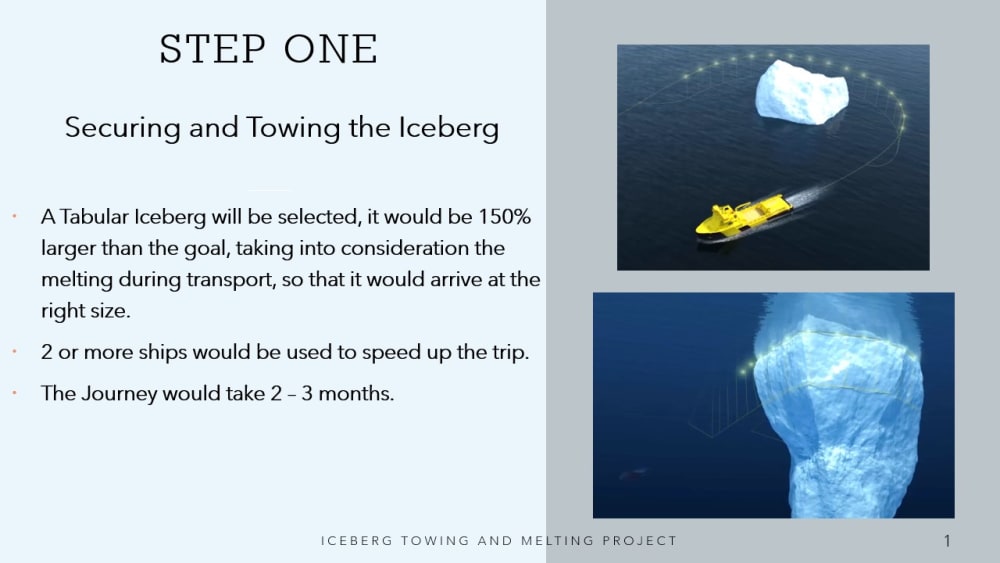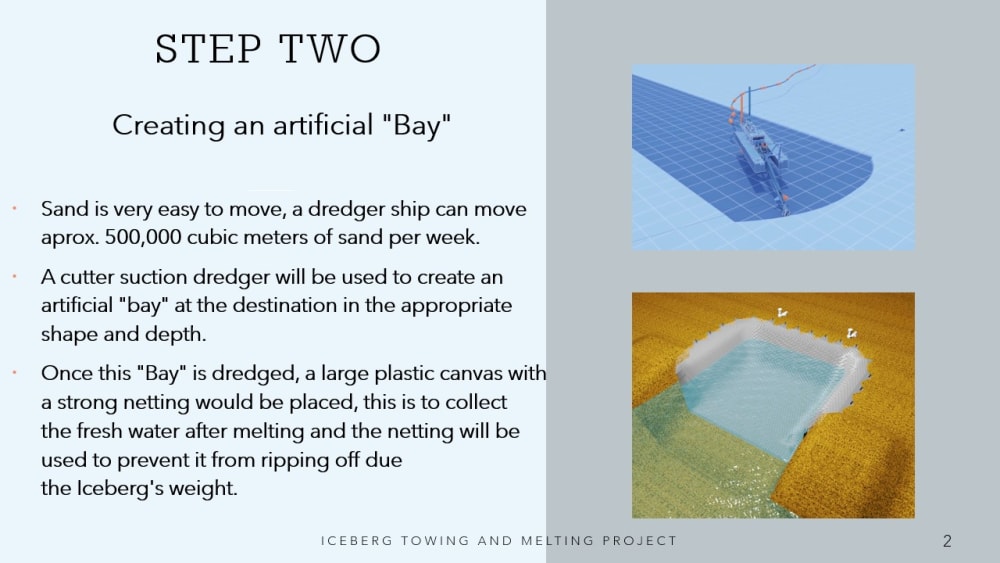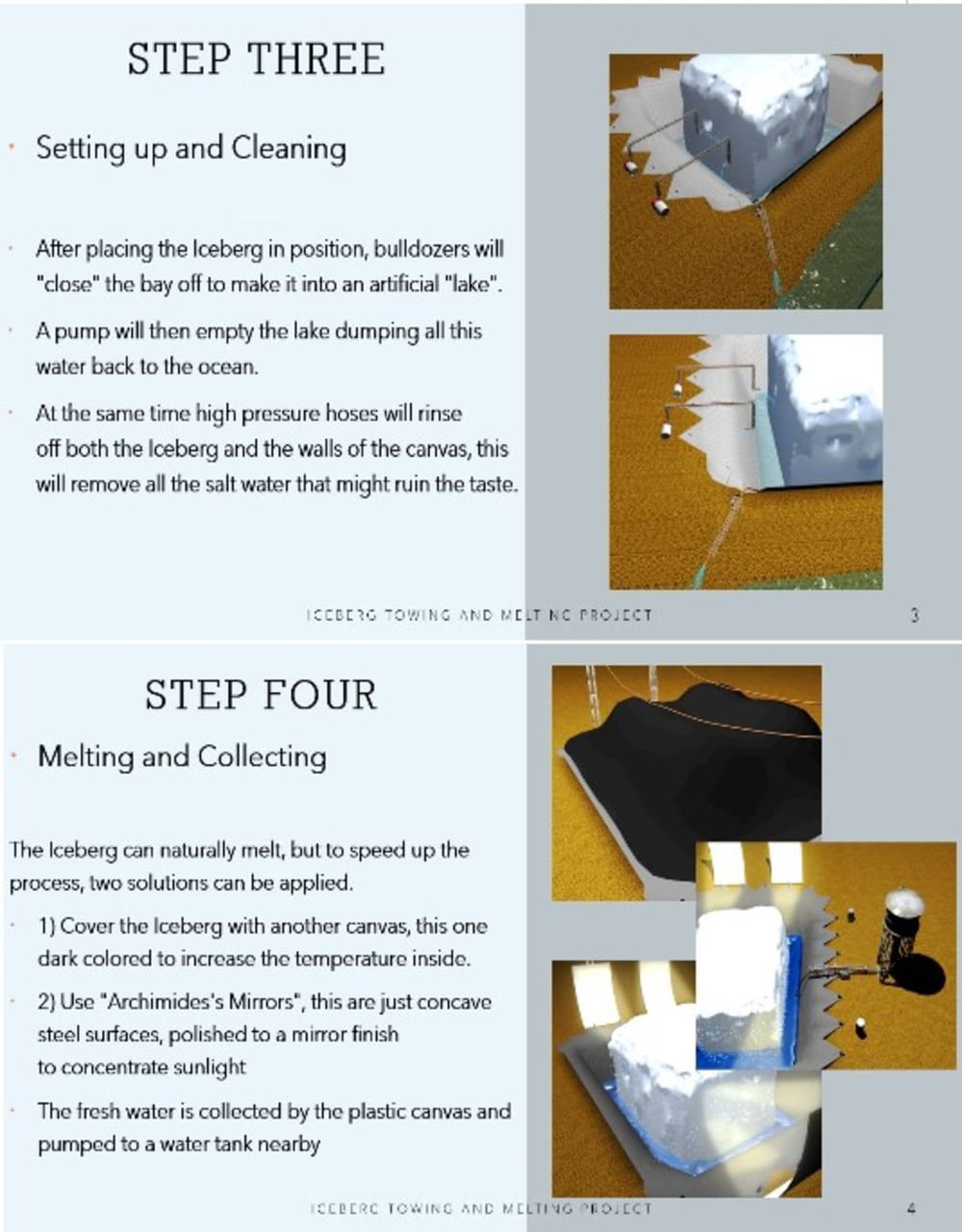Fresh water is very scarce in some regions of the World, especially in some desert areas like Africa and the Middle East, Developed Countries rely mostly on Water Desalination for human consumption.
This Project explains how to tow an Iceberg from Antarctica to the Middle East, or South Africa in 3 to 4 months and at a cost of less than a Million Dollars in 4 easy Steps:
STEP ONE: Towing the Iceberg
A Tabular shaped Iceberg would be found size about 7 stories high and as big as 2 city blocks, since no covering would be used during transit, an oversized Iceberg would be chosen taking into consideration the Melting ratio to arrive with an "ideal" iceberg size.
STEP TWO: Creating an artificial "cove"
At the destination, an artificial "lake" or "cove" would be created using sand dredgers, sand is Very Easy to move this way, a Cutter Suction Dredger can move 500,000 cubic feet of sand in a week.
Once the area is dug out, a large plastic canvas with a strong netting will be placed, this will collect the fresh water and the netting will prevent this canvas from ripping off due to the Iceberg's weight.
STEP THREE: Setting up and Cleaning the Iceberg
After placing the Iceberg inside the "cove", bulldozers will close the area from the ocean.
Then high pressure hoses will "rinse" the Iceberg with fresh to remove the salt water that might ruin the taste, this water will be pumped out to the ocean.
STEP FOUR: Melting the Iceberg
Now the Iceberg is finally read to produce Fresh Water, it can be left there to naturally melt, but to speed up the melting process two solutions can be used:
- Covering the Iceberg with a dark colored canvas to increase the temperature inside.
- Use Concave mirrors or steel surfaces polished to a mirror finish to concentrate the sunrays onto the Iceberg.
This melt water is ready to drink and is collected by the plastic canvas and pumped to a water tank nearby.
An Iceberg surviving the 80-day tow at a speed of 2 m/s initially would arrive measuring approx. 160m in length and 50 m thick, or about as big as 6 story building and as big as a city block, an Iceberg with these dimensions holds approx. 3.1 Billion liters of drinking water which equates to enough water for 1.7 million people for 3-4 months.
These results open up the possibility of developing a system where more than one iceberg is en-route to its destination at any one time to create a transit system where the arrival of a new iceberg continues to alleviate dependance on existing water sources such as groundwater, dams, and desalination.
Video
Like this entry?
-
About the Entrant
- Name:Luis Ricardo Mercado Mendoza
- Type of entry:individual
- Patent status:none








